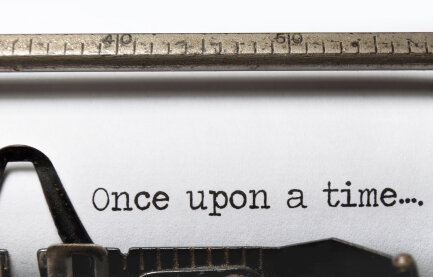 When most people nowadays – pagan, monotheist, athiest or otherwise – think of the word “myth”, we typically imagine sacred stories of other times and cultures, things that may-or-may-not have happened long ago, tales that no one can now affirm or deny with any real certainty. We may venture to muse on children’s stories or folk lore, but rarely do we consider our current ideologies and systems of codification to fall into this category.
When most people nowadays – pagan, monotheist, athiest or otherwise – think of the word “myth”, we typically imagine sacred stories of other times and cultures, things that may-or-may-not have happened long ago, tales that no one can now affirm or deny with any real certainty. We may venture to muse on children’s stories or folk lore, but rarely do we consider our current ideologies and systems of codification to fall into this category.
What exactly is a modern myth, you ask? According to James Curcio of ModernMythology.net and author of The Immanence of Myth “Modern myth is on the lips, minds, and knife-points of those in the midst of active revolution, as well as those working in media. In fact, all that is represented, all that we could form an opinion on as we form an opinion on it, is in that process entering the realm of myth.“
Scientists, sociologists and cultural anthropologists tend to refer to these kinds of myths as narratives – another word for “stories”. Take for example this statement from John Bickle and Sean Keating at New Scientist:
“We are our narratives” has become a popular slogan. “We” refers to our selves, in the full-blooded person-constituting sense. “Narratives” refers to the stories we tell about our selves and our exploits in settings as trivial as cocktail parties and as serious as intimate discussions with loved ones. We express some in speech. Others we tell silently to ourselves, in that constant little inner voice. The full collection of one’s internal and external narratives generates the self we are intimately acquainted with. Our narrative selves continually unfold.”
Sometimes our narratives are strictly personal, the stories we tell ourselves (and sometimes those we are close to) about ourselves and the people we interact with directly on a day-to-day basis. Sometimes these myths take on bigger and more complex relationships, especially when they relate to our ideas about ourselves as groups of people, about how we as groups relate to each other and about the nature of the universe itself.
So, you’re asking yourself… what does this have to do with sex?
If there is one realm of our lives that is at the constant center of our story-telling attention, sex is it. I am constantly reading articles that make blanket statements about what “all men” want in a relationship and how “all women” are supposed to feel when it comes to sex. The thing about the science we use to make these gender distinctions is that at first groups people into two seemingly identifiable groups – men versus women – and then attempts to “map” our differences. Is it any wonder we find that when we create a dichotomy such as this, people tend to diverge to one side or the other, instead of all lumping together into the middle?
The Kinsey scale, which has been around for decades, describes sexual orientation on a 1 to 10 scale, yet we still talk about it as if “straight”, “bi” and “gay” can describe the entirety of sexual experience. Gender is an even more controversial issue. The myth that “penis or vagina” are the be all and end all of our gender roles, and that this somehow determines our fate rather than merely suggesting possible tendencies, is a widespread and a dangerous myth to attack. A lot of people have a lot of faith (and money) tied up in these notions. This is why folks get so up in arms when someone suggests that maybe, just maybe, knowing a person’s gender isn’t all that important.
Science makes it fairly easy for media to make claims that seem to be backed by evidence but in reality merely hint at slight tendencies that may practically be unnoticeable. According to Dr. Cordelia Fine, author of “Delusions of Gender: How Our Minds, Society and Neurosexism Create Difference”:
These cultural lores, which in popular hands can become nothing short of monstrous fiction, are standing in the way of greater sex equality – just as measures of skull volume, brain weight and neuron delicacy did in the past.
Our modern mythologies ultimately define us, not only as a species, but as our civilizations and as individuals. If we allow ourselves to believe that what lies between our legs limits us in any way beyond the obvious physicality, well…. so may it be. That, my friends, is magic.
Originally published June 16, 2011
